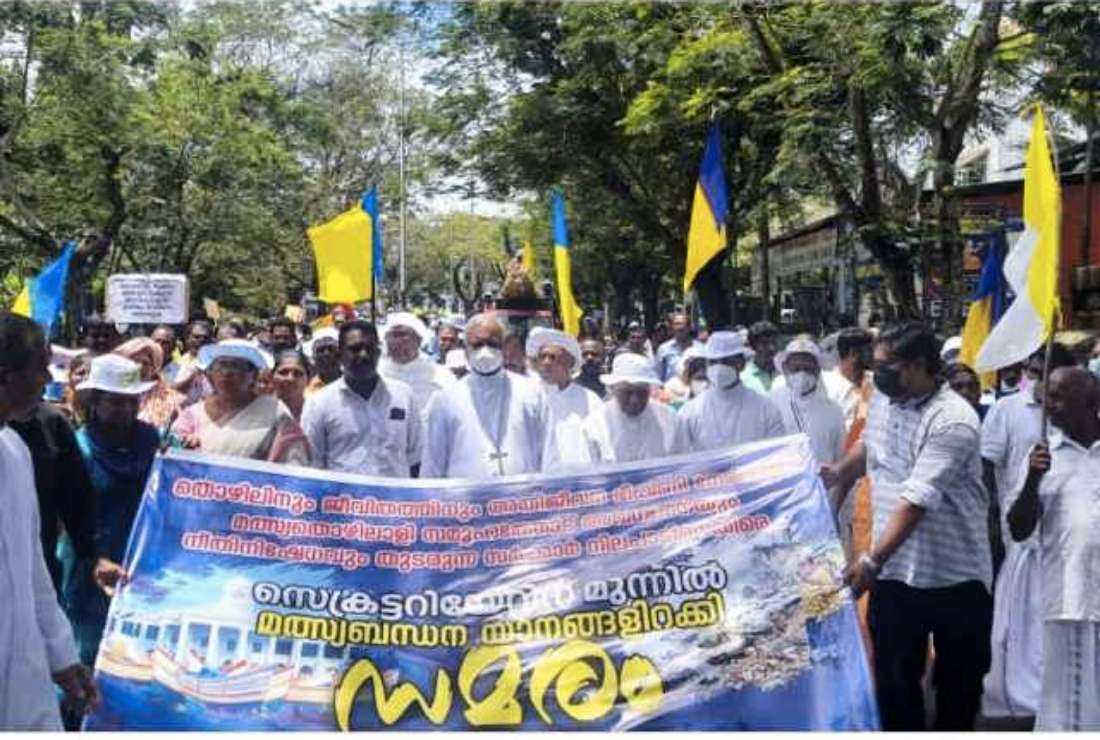
Archbishop Thomas Netto of Trivandrum (center) leading the protest of fishermen, who want the government to halt the construction of a port project in the southern Indian state of Kerala. (Photo: supplied)
The second round of government-level talks failed to end the month-long protest by Catholic fishermen against the construction of a multi-million-dollar port project in the southern Indian state of Kerala.
Father Eugene H. Pereira, vicar general of the Thiruvananthapuram Archdiocese, told the media on Aug. 24 that the protest will be intensified as government representatives refused to stop construction work at the site of the port.
“Our talks with the government representatives failed as they refused to consider our demand for temporarily halting the construction work of the port and setting up an impartial experts team, including representatives of the fishermen, to study the social and environmental impact of the port project,” Father Pereira said.
Thousands of fishermen along with their families, led by the bishops and priests of the Latin-rite Archdiocese of Trivandrum (Thiruvananthapuram), launched their indefinite protest against the Adani Ports and Special Economic Zone along the coast of Vizhinjam on July 20.
More than 90 percent of the Catholics in the archdiocese live along the coast facing the Arabian sea. They say the port construction activities since 2015 have increased sea erosion and destroyed their livelihoods and homes.
Some 500 houses were submerged in the sea forcing families to live in makeshift shelters and warehouses without even the basic amenities, local people said.
The protesting fisher people have been demanding fair compensation and total rehabilitation for lost houses and livelihoods while also seeking subsidized kerosene for their fishing vessels as they were forced to pay 130 rupees (US$1.7) a liter as against 25 rupees in neighboring Tamil Nadu state.
“We want kerosene at a subsidized rate,” said one of the protest leaders.
A cabinet sub-committee that met on Aug. 22 reportedly decided to allocate 10 acres of land near the coast for rehabilitation of those affected.
But it has refused to concede to the demand for halting the port construction and undertaking a fresh study on the project’s social and environmental impact.
Government officials accused Christians in Kerala of blocking the nation’s development by opposing the ambitious port project.
But Church leaders said their fight is for “the rights of the coastal people who are losing everything including their houses and even opportunities for employment following unscientific construction of the port.”
“We are not against development. Let them develop, but first, let those people living on the coast live peacefully and with dignity rather than pushing them to unhygienic places as refugees,” said a priest.


